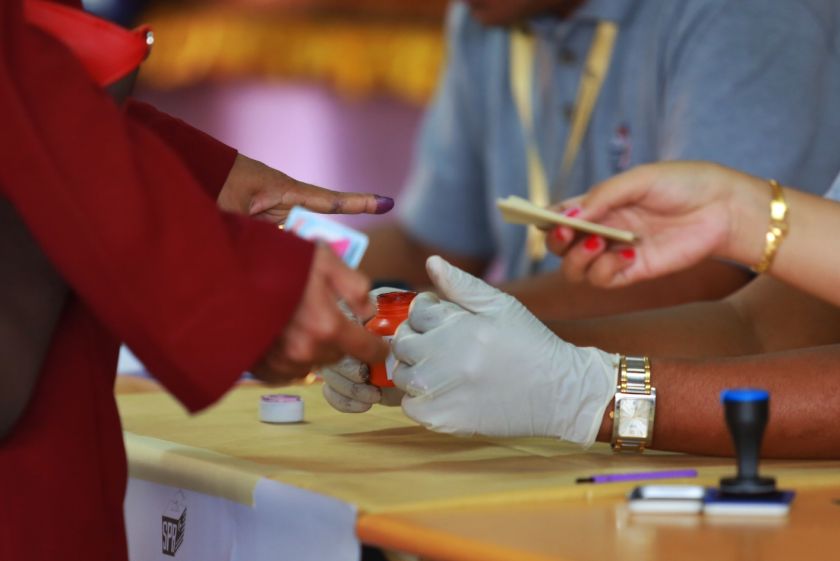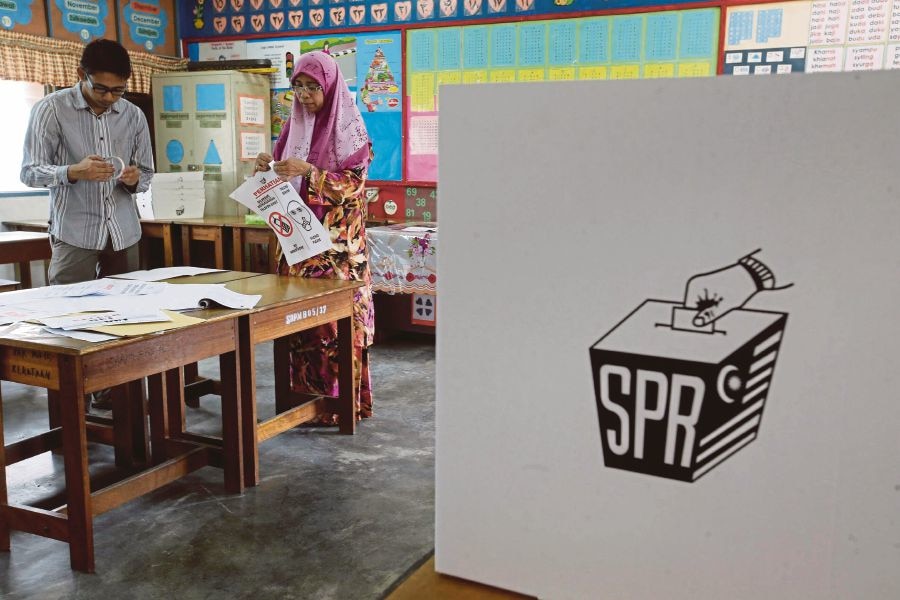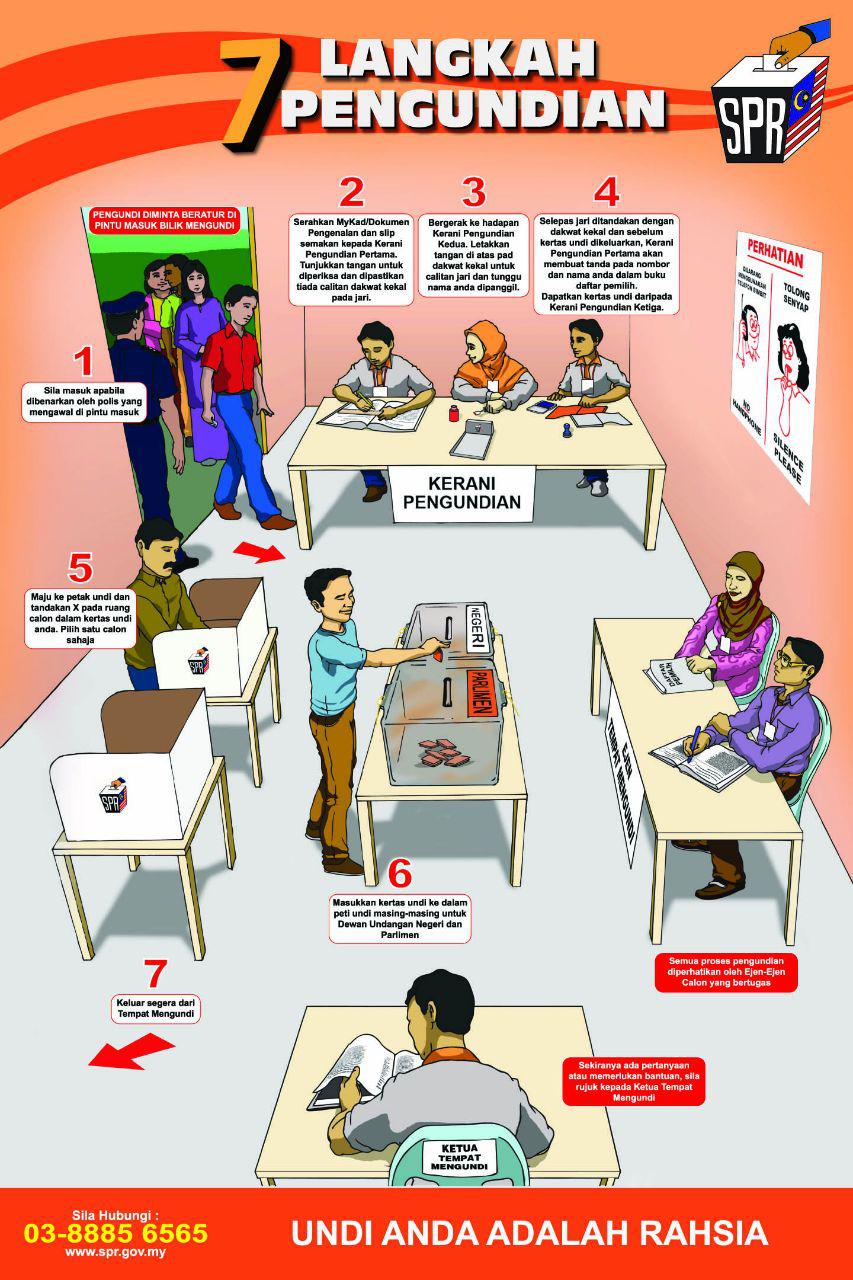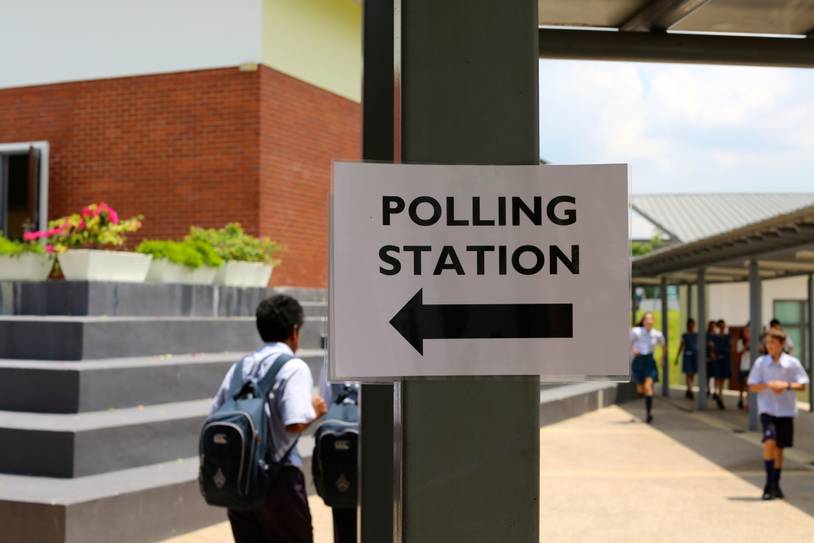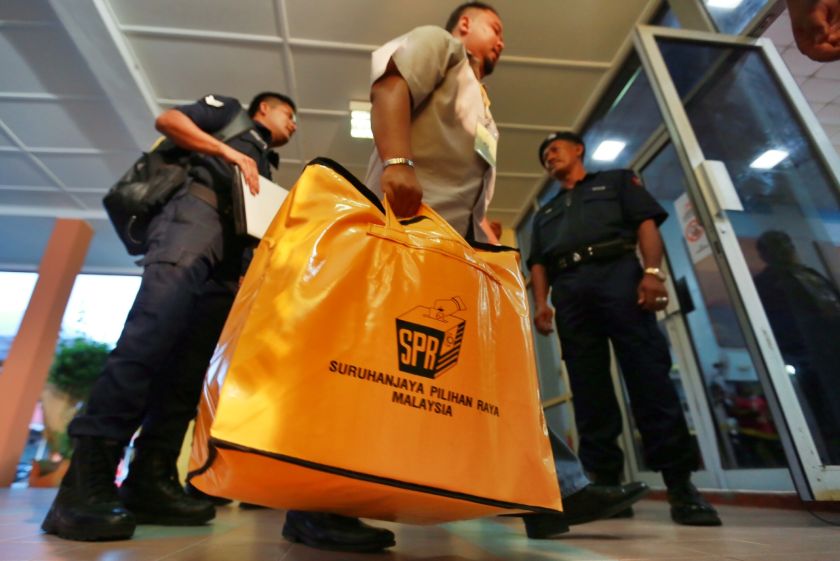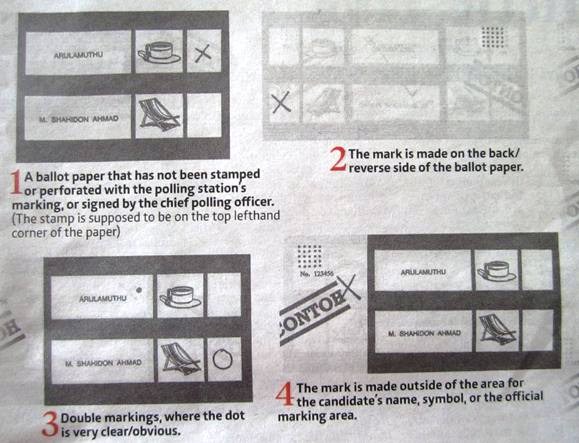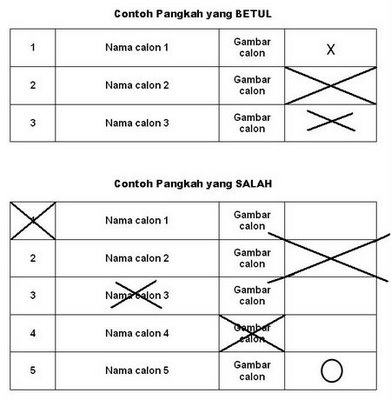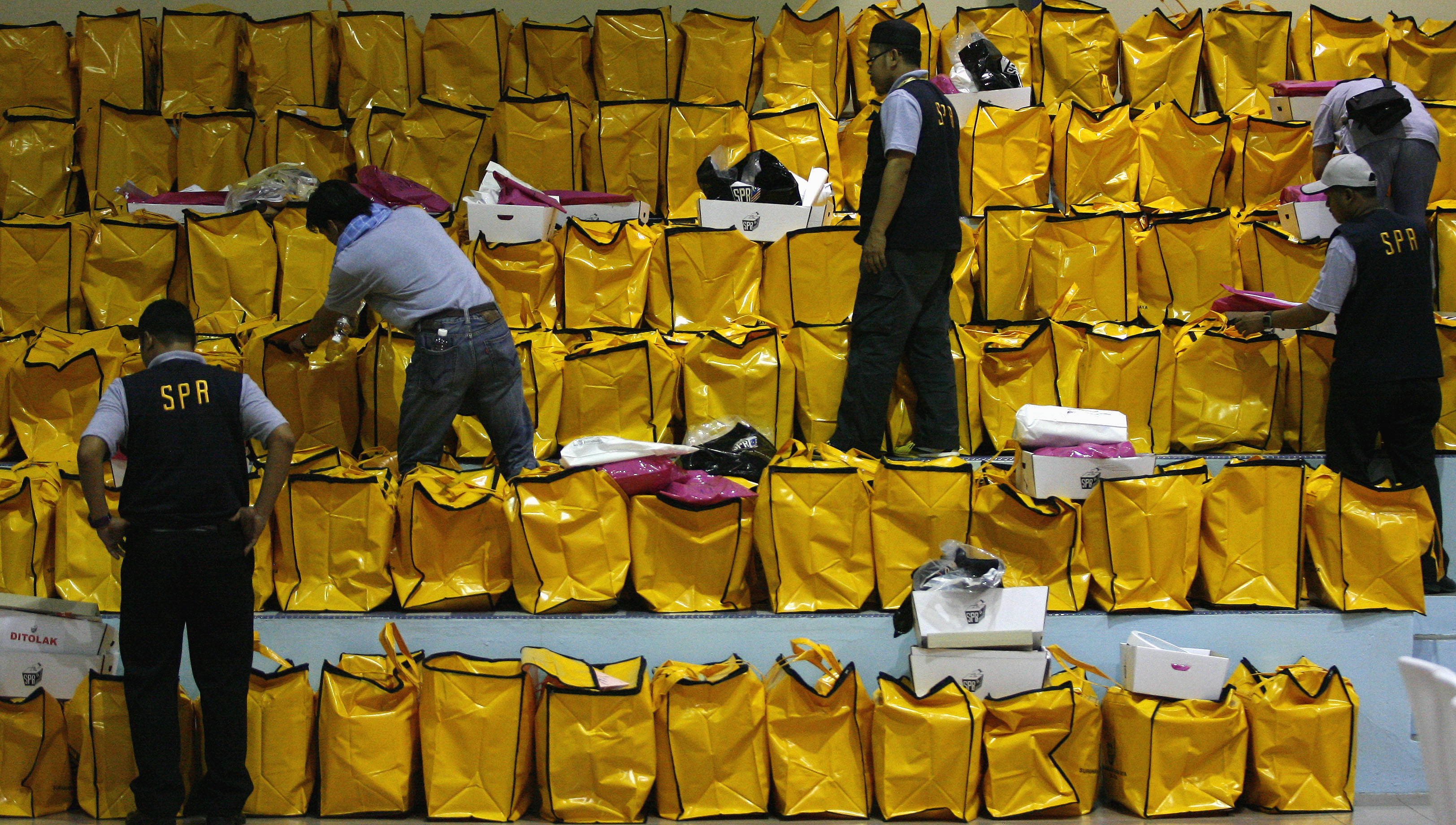Everything You Need To Know About How Votes Are Counted On Polling Day
All the questions you have about how votes are counted, answered.
Have you ever wondered how votes are tallied on polling day during the general elections in Malaysia?
It's a complex process guarded by the Malaysian Constitution and a set of strict election laws that must be complied with in order for the election to be legal and valid.
To help you better understand it, here's a brief run through of who's in charge and how votes are counted after polling closes on election day:
Who are the officers in charge and present on polling day?
The Election Commission (EC) appoints the following officers to assist with the election process on polling day:
1. Secretary, Deputy Secretary, and Assistant Secretary - The secretary is the Chief Administrative Officer of the EC and will fulfil the commission's functions and carry out its decisions.
2. State Election Officer - Performs duties on behalf of the EC in relation to the conduct of election in the state he is appointed in.
3. Returning Officer - Supervises the conduct of elections and the registration of electors on the electoral rolls with direction and control of the EC.
4. Presiding Officer - The official in charge of a polling station. It is the returning officer who appoints the Presiding Officer who will preside at each polling station in his constituency.
5. Enforcement Officer - Ensures enforcement of laws relating to the conduct of elections in the constituency for which he is appointed in.
Who is allowed to enter the polling centres?
On polling day, the voting period is usually fixed from 8am until 5pm. Only voters whose names are on the electoral roll of their respective polling stations are allowed to enter.
Voters can check their electoral serial number and polling stream by presenting their Identity Card (IC) at the booths set up by the EC at all polling centres.
Other people allowed to enter polling stations are:
1. EC members and its officers
2. Presiding Officer and other elected officers
3. Election candidates and their polling and counting agents
4. Persons authorised by the EC
Enlarge the image below for a closer look at the seven steps you'll encounter at the polling centre on election day.
Where will the votes be counted?
The EC will usually use schools and public buildings as polling stations.
Image via Marlborough College MalaysiaElections (Conduct of Elections) 1981 says that votes by electors at any polling station will be counted at the polling station where the electors voted.
If the counting of votes has been postponed, the Returning Officer shall, after consultation with the State Election Officer, set a time and place at which the Presiding Officer will count the votes and shall inform each candidate or his election/counting agent of such place and time, as specified under sub-regulation 25B(4).
Postal votes
Absent voters will cast their votes earlier on the date specified by the EC and all marked postal ballot papers must reach the Returning Officer's office by 5pm on polling day.
The Returning Officer will give each candidate or his election agent at least 24 hours notice in writing of the time and place of the opening of each postal voters' ballot box and the envelopes contained in the ballot box.
What happens during the counting of votes? Who is allowed to be in the room?
The Presiding Officer must ensure that only these people are present during the counting of the votes:
1. Members and officers of the EC;
2. The Returning Officer, Presiding Officer, and other officers and staff appointed by the EC;
3. The candidates and their election agents, and ONE counting agent for each candidate; and
4. Persons authorised in writing by the EC
Before the Presiding Officer and the counting clerks appointed by him start counting the votes, they must ensure that their hands are clean.
They will then open the ballot boxes and arrange the ballot papers by serial numbers and verify that the serial numbers on the ballot papers are consistent in the presence of each candidate or his election or counting agent who is present.
Only after determining that, the officers will begin counting the ballot papers according to the votes by electors for each candidate and endorse the word, "rejected" on any ballot paper which he deems invalid.
The Presiding Officer can reject a ballot paper as invalid, if it is:
2. Votes are given for more than one candidate;
3. Written or marked by which the voter can be identified;
4. Unmarked or marked other than in the place or manner provided;
5. Does not clearly indicate the choice of the voter; and/or
6. Does not have the serial number shown in Part B of Form 13E
The Presiding Officer must show each candidate and his election or counting agent who's present and consider their views. However, the final decision to reject the ballot paper lies with the presiding officer.
Here's how to mark the ballot paper properly.
Image via Suruhanjaya Pilihanraya Kampus IPG DarulamanWhat about counting postal votes?
The Returning Officer will make the necessary arrangements to count the postal votes after informing the candidate and his election or counting agent of the time and place where he will count the votes.
Once the counting is done:
1. The Returning Officer will put the counted ballot papers and the rejected ballot papers into separate packets and secure them with tapes.
2. The packets will then be signed by the returning officer, each candidate or his election or counting agent who is present and wishes to sign on the security tape.
3. The Returning Officer will then make arrangements for the official addition of the votes and inform the candidates and their election or counting agent on the time and place where he will add up the votes for each candidate.
4. After the official addition of the votes, the Returning Officer will declare the candidate to whom the highest number of votes was given as the elected representative.
As soon as all the votes have been counted, the EC will make the official announcement on the winner and the decision is final
To form a government, a political coalition has to win the majority of the 222-member Dewan Rakyat. This means that they'll have to secure at least 112 out of the 222 contested seats using the first-past-the-post system.
However, a dissatisfied party may challenge the results by filing an election petition in court on the following grounds:
1. Bribery, intimidation, or any misconduct that affects the result of the elections;
2. Violation of election laws and regulations;
3. Corrupt or illegal practice committed by the candidates or their agents; or
4. The candidates or their agents are found to be disqualified from contesting
The petition must be presented to the High Court within 21 days after the publication of the results in the gazette.
According to the Election Offences Act 1954, if the court finds the alleged offender guilty and declares the elections to be void, the EC will have to conduct a fresh election for the constituency in question.
References:
The information above on how votes are counted and the overall election process are based on;
Election (Conduct of Elections) Regulations 1981
Elections Act 1958
Election Offences Act 1954
